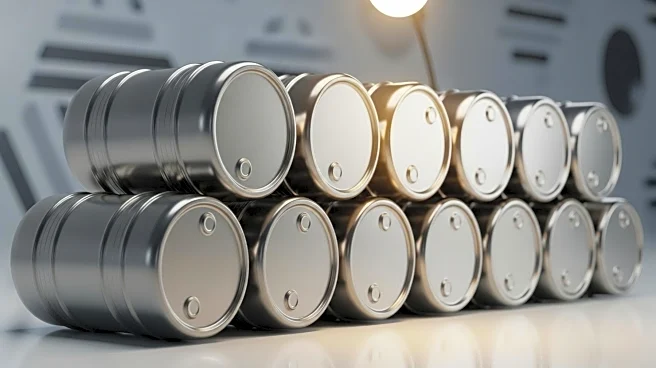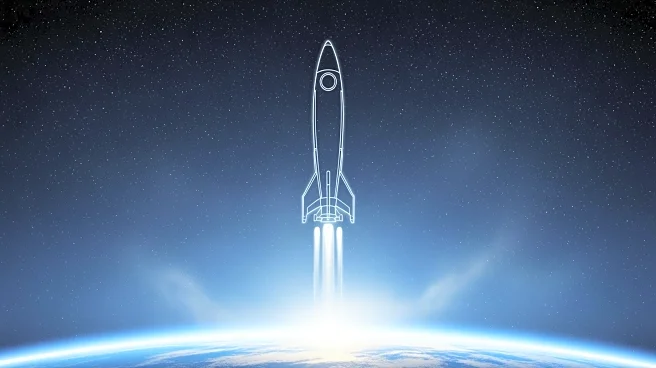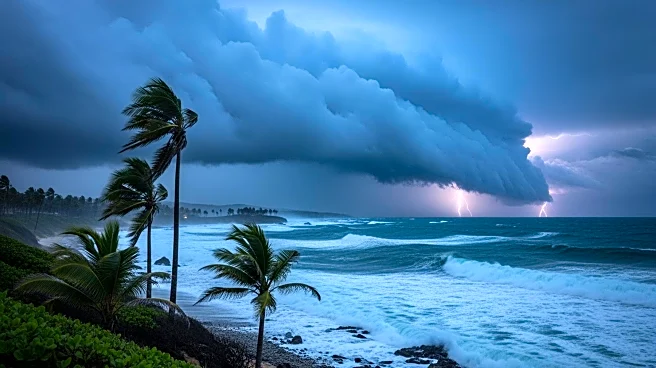What is the story about?
What's Happening?
OPEC+ has agreed in principle to increase oil production starting next month, as the group seeks to reclaim market share rather than defend prices. Key members, including Saudi Arabia and Russia, plan to add approximately 137,000 barrels per day during a video call, marking the beginning of unwinding 1.66 million barrels a day of cuts initially scheduled to last until the end of 2026. This decision follows a recent move to revive 2.2 million barrels of halted production a year ahead of schedule, despite expectations of a surplus. Crude prices have dropped 12% this year due to increased supply and the impact of President Trump's trade war on demand. The market has remained resilient, encouraging OPEC+ to continue increasing production.
Why It's Important?
The decision to increase production is significant as it reflects OPEC+'s strategic pivot towards gaining market share, which could impact global oil prices and economic stability. Lower oil prices may benefit consumers and industries reliant on energy, but could pressure member nations that depend on higher prices for economic stability. The move aligns with President Trump's calls for lower oil prices to combat inflation and pressure Russia regarding its conflict with Ukraine. The potential visit of Saudi Crown Prince Mohammed bin Salman to Washington in November underscores the geopolitical implications of this decision.
What's Next?
If OPEC+ continues to increase production by 137,000 barrels per month, it could unwind the full 1.66 million barrels within a year. However, some members may face challenges due to earlier oversupply and lack of spare capacity, potentially affecting the actual volume of production increases. The decision may also lead to increased pressure on nations unable to pump more oil, affecting their economic stability. The ongoing discussions among delegates suggest that future meetings may consider various options, including pausing, increasing, or reversing production hikes.
Beyond the Headlines
The decision to increase production could erode the safety net of idle production capacity, which traditionally cushions unforeseen supply shocks. This strategic shift by OPEC+ may influence global oil markets and speculators, as Saudi Energy Minister Prince Abdulaziz bin Salman has a history of surprising market players. The move also highlights the tension between forecasts of a supply surplus and the relatively tight market conditions experienced over the summer.














